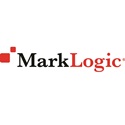Business
New MarkLogic Service Automates Query Capacity to Deliver a Cost-Effective Database in the Cloud (MESA)
Story Highlights
MarkLogic today announced the MarkLogic Query Service, a new way to give customers automatic elasticity in the cloud for their mission-critical, enterprise-grade workloads. The MarkLogic Query Service rapidly and automatically adds and removes query processing capacity to a database cluster as workload demand rises and falls, resulting in the greatest agility and responsiveness at the lowest overall cost to end users.
Most applications today, whether cloud-native or legacy, have user demand that varies over time and is often hard to predict. The MarkLogic Query Service allows these applications to automatically and instantaneously provision the appropriate resources available to meet the current demand without overprovisioning or forcing the end-user to overpay for temporary capacity. By combining different purchasing models for base and burst capacity, enterprise customers can keep query capacity in lock-step with demand with no administrative overhead, incredibly fast response times, and a superior cost model.
 “Large enterprises expect three things when moving to the cloud: agility, security, and zero-administration. With the MarkLogic Query Service, our customers can achieve all of this while gaining lower, more predictable costs,” said Joe Pasqua, EVP and Head of Products at MarkLogic. “We’re excited to bring another new and innovative service to market that takes full advantage of MarkLogic’s dynamic architecture, which leading industry analysts have praised for its unique ability to separate compute and storage capacity at the database level. Coupled with our advanced security capabilities, the MarkLogic Query Service provides a solution that no one else can match in terms of agility, security, and cost.”
“Large enterprises expect three things when moving to the cloud: agility, security, and zero-administration. With the MarkLogic Query Service, our customers can achieve all of this while gaining lower, more predictable costs,” said Joe Pasqua, EVP and Head of Products at MarkLogic. “We’re excited to bring another new and innovative service to market that takes full advantage of MarkLogic’s dynamic architecture, which leading industry analysts have praised for its unique ability to separate compute and storage capacity at the database level. Coupled with our advanced security capabilities, the MarkLogic Query Service provides a solution that no one else can match in terms of agility, security, and cost.”
MarkLogic’s Unique Architecture Changes the Game
The MarkLogic Query Service takes advantage of MarkLogic’s unique architecture to handle constantly changing demands. Unlike other databases, MarkLogic’s architecture separates query activities (mostly computation) from storage activities (including journaling, data distribution, and other on-disk data management). Storage activities typically make database scaling very slow and costly. Because of its ability to separate storage functions, MarkLogic can rapidly add query capacity to a cluster. MarkLogic does this while maintaining the enterprise guarantees it has always provided and that newer databases are still struggling to add.









